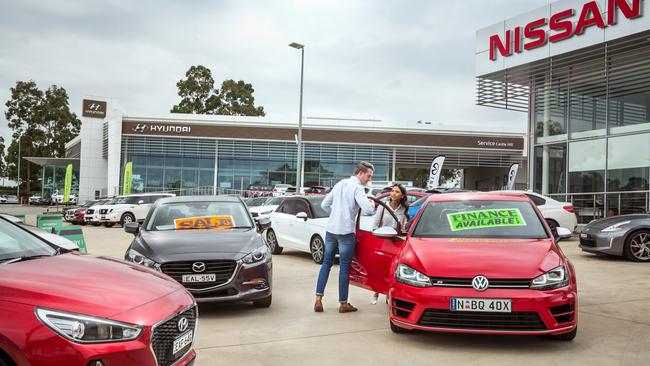Carsales has bought into the US market through Trader Interactive but the price might be too great


This has largely been done via acquisitions. However, I’m scratching my head over its recent acquisition in the US marketplace, Trader Interactive. To my mind, it has simply paid too much.
Back in 2010, I wrote Value.Able – How To Value the Best Stocks and Buy Them For Less Than They’re Worth. In a chapter on the importance of understanding quality in companies, I explained how to think about acquisitions and referred to the danger of focusing on earnings accretion and synergies, while ignoring the deleterious impact on value from diminishing returns on equity.
One of the examples I described was the 2007 acquisition of Coles by Wesfarmers, concluding Wesfarmers had massively overpaid when buying Coles for $22 billion just before the GFC, in what was then the largest successful takeover in Australian corporate history.
The conclusion, however, had nothing to do with the subsequent GFC. In 2007 Coles generated a profit of $747m on balance sheet average equity of $3.75bn. Coles’ return on equity was 19.9 per cent.
I concluded that even the most brilliant retailer could reasonably pay no more than $11.7bn. Wesfarmers paid $22bn, earning shareholders a return on equity of just 3.5 per cent.
Meanwhile, the risk profile changed dramatically too. On a per-share basis, after the acquisition of Coles, Wesfarmers’ shareholders owned $21.28 of the business, but they owed $13.19 per share. That’s risky enough, but of the $21.28 in equity owned, $17.82 was in the form of intangibles and 79 per cent of those intangibles represented the excess paid for Coles above the market value of its hard assets.
Wesfarmers clearly overpaid. This was reflected in the subsequent collapse of Wesfarmers’ shares. Then, in late 2018, Coles was spun out from Wesfarmers. It was then capped at just $16.6bn. Wesfarmers did in fact massively overpay.
The reason for this history lesson is that a similar argument can perhaps be mounted for Carsales’ acquisition of Trader Interactive.
The total acquisition price was just shy of $2bn. At the time of the acquisition, Carsales was reported to have said: “The acquisition is expected to generate attractive financial returns for shareholders with low double-digit EPS accretion in year one.”
I do love an “earnings accretive” acquisition as much as we like synergies, but they are merely base requirements when too much has been paid in the first instance.
And if management incentives are based on earnings growth, rather than profitability and value creation, as measured by returns on equity, then the incentive exists to behave in a way that detracts from long-term value growth.
A fair question to instead ask is what is the return on equity capital shareholders should expect from the acquisition? Keeping in mind a relatively small part of the acquisition of Trader Interactive was funded with debt, which of course must eventually be repaid by shareholders, we can look at the return on invested capital.
Note that prior to the acquisition, in FY20, Carsales shareholders enjoyed a return on average equity of 29.5 per cent. If shareholders demanded the same return on their equity from the Trader Interactive acquisition, the target company should be generating an after-tax profit of something approaching $590m. If they were satisfied with a 10 per cent return on their equity, Trader Interactive should be generating an after-tax profit of $200m.
In Carsales’ FY22 annual general meeting and trader update, annualised first-quarter revenue (not profit) was just $US155m. Annualised EBITDA was $US91m.
After-tax profits are nowhere near the $200m required for a 10 per cent return, let alone the $590m required to maintain Carsales’ pre-acquisition ROE of 29.5 per cent.
At a minimum, shareholders will hear more about the size of the US market, the achievement of synergies, and the growth in revenue and earnings. None of these measures, however, compare to the importance of ROE as a driver of long-term value creation and ultimately share price.
Time will ultimately conclude whether too much has been paid by Carsales for Trader Interactive.
On a purely ROE basis, however, shareholders currently appear to be a long way from being better off.
Management will have to work very hard, or shareholders will have to be very patient. Or both



Since its founding in Melbourne in 1997, Carsales (ASX: CAR) has grown its footprint to now operate in digital marketplaces across Oceania, Asia and the Americas.